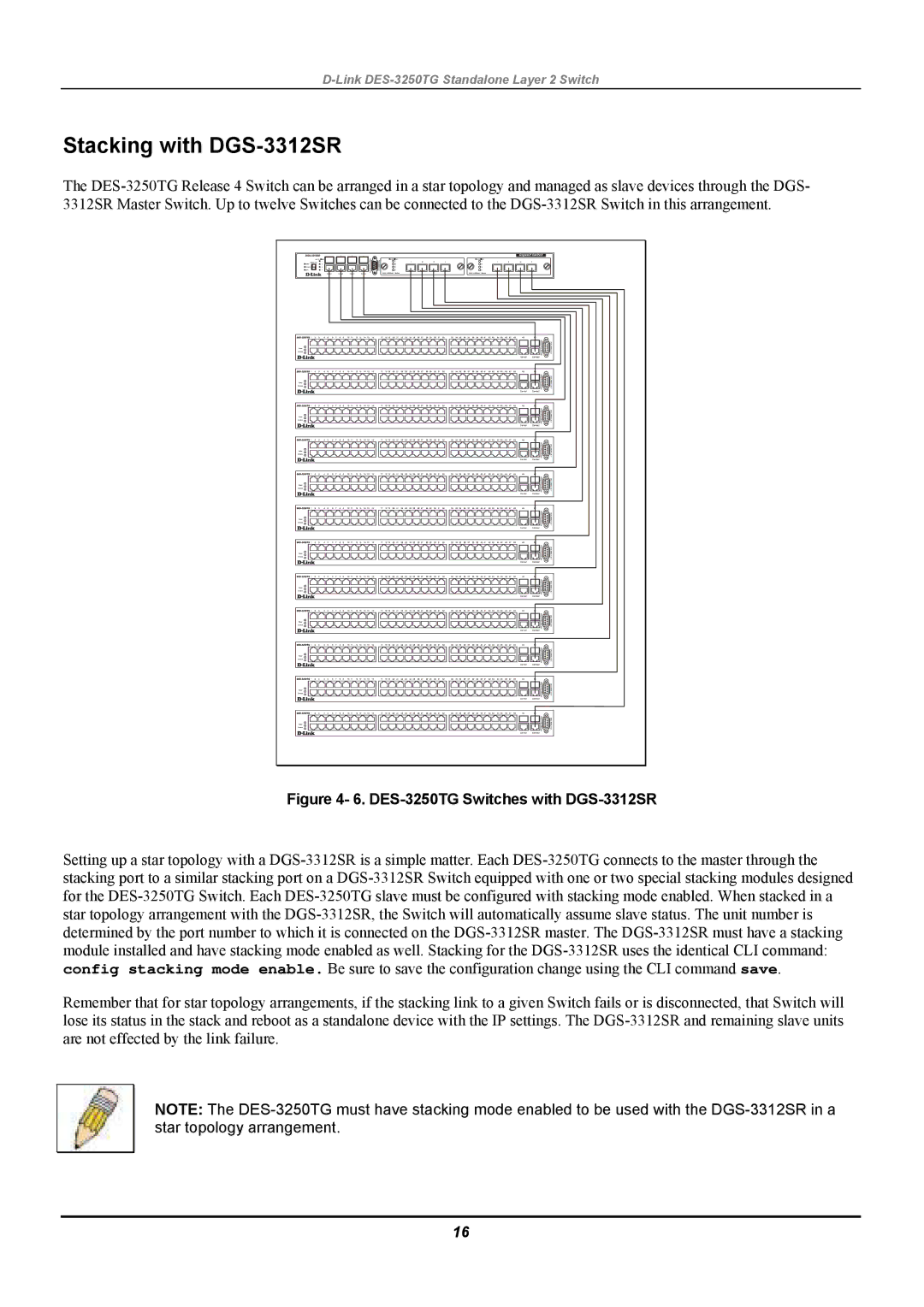
D-Link DES-3250TG Standalone Layer 2 Switch
Stacking with DGS-3312SR
The
Figure 4- 6. |
Setting up a star topology with a
Remember that for star topology arrangements, if the stacking link to a given Switch fails or is disconnected, that Switch will lose its status in the stack and reboot as a standalone device with the IP settings. The
NOTE: The
16
